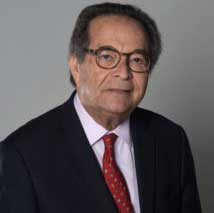The balloons or Chinese tales

By: Luis Beltrán Guerra G. - 16/02/2023
Share:
The story tells of the so-called "Chinese Revolution of 1949", which ended a civil war that lasted 22 years. Defeated, Generalissimo Chiang Kaishek, by Mao Zedong, the "Chairman Mao", who became the founder of the "People"s Republic", whose President is today Xi Jinping, "the man with the sad face and straight but well-groomed hair" . The laws and regulations of the previous government, described as anti-revolutionary, without exceptions, were repealed, acquiring force "a transitional constitution, the starting point for "the new China."
The forecasts of the new regime were not “balloons or Chinese tales”. Rather, quite the opposite, as revealed by the position that "the Federal Republic" (PRC) occupies today in the world sphere, achieved through 4 constitutions, the one of 1954 with Mao as President, and those of 1975, 1978 and l982, qualified as the most suitable. It seems that "the east of the Asian Continent and the western shore of the Pacific Ocean" maintain an atmosphere prone to "constitutional stability", as opposed to other latitudes characterized by "magna cartas" that run the fate of "balls" we do not know what sport , well, they are thrown, batted, basketed, charged and even kicked. The Chinese, as they do not play with the constitutions, despite the fact that, in addition, "the balloons and the stories", "the Chinese games", also, have their fame.
The stories, in principle, "the genre", appear referring to certain typified people for expressing something to a third party who does not believe them. The journalist Andrés Oppenheimer accuses the countries of Latin America of being steeped in "Chinese tales", as opposed to China, Ireland, Poland, the Czech Republic, among others, which are carrying out serious development programs (the book, "Chinese tales") . Perhaps the "Bonarense" is disturbed by the more than 30 centuries of "Chinese civilization." Some attribute it to Xiáo, the central value that unites the family and, consequently, society. A social political model inspired by the family order to balance the achievement of individual and collective interests, under the protection of a "democratic and legal state".
The weight of the family hierarchy for the Chinese is so decisive that it is usually narrated, without it being “a story or a game”, that a student from Beijing, whose dream was to study at Cambridge, was admitted. And during a visit to the tutor, he tells him that he cannot accept it, because his father is opposed to it. In the face of the teacher"s alarm, he told him "our tradition obliges us to observe the privileged place of the father in leading the family nucleus." Another demonstration that Asians are clear, at least, when "a story is not Chinese."
In the legal library of the UNAM, it is read that Mo Jihong, Professor of Constitutional Law at the Chinese Academy of Social Sciences, expresses, when referring to the Magna Carta of 1982, that after two years of efforts and with the participation of 400 million of citizens, the text entered into force and consists of the Preamble, General Principles, Rights and Obligations, State Structure, National Popular Assembly, President of the Republic, Council of State, Central Military Commission, Local Popular Assemblies and Governments, Organs of self-government of National Autonomous Regions, People"s Courts, Flag and national emblem and finally what is the capital of the PRC. The Text is the cornerstone of the new Chinese system and its People"s Congress, and its principles determine the new direction of China"s modernization, as well as the foundations of the construction of its legal system. Appreciation, which does not stop surprising, perhaps, due to the ignorance of what happens in the 9,600,000 km2 in the vast Asian geography. And far from our homes.
Professor Mo also makes reference, with adequate didactics and seriousness, to "human rights" stipulated in the Magna Carta of 1982. It would not be daring that it is an "exponential cast" quite similar to that of Latin American constitutions. We doubt that the maxim according to which the preceptual writings in such an important matter, in countries with democratic roots, tend to remain in the dark, failing in what concerns their execution, given what is heard with respect to the Chinese regime, today described by the Fundamental Law itself as “socialism”, “communist”, at least, until the “Third Plenary Meeting of the Eleventh Central Committee of the PC. That is, prior to the Basic Text of 1982. It seems to make sense to investigate, therefore, to what extent the observance of human rights reigns under the government of XI Jinping. Perhaps, as far as this topic is concerned, the Asian variable of "Chinese tales" is valid. Where absolute truth seems to reign and without "fictions" is in relation to Hong Kong, Macao and the District of Taiwan, for the supreme regulatory regime "special regions", with respect to which China has reiterated its irrefragable willingness to defend them. Appreciation that has considerably cracked the contest with the Joe Biden Administration in the US. for the supreme normative regime “special regions”, with respect to which China has reiterated its irrefragable willingness to defend them. Appreciation that has considerably cracked the contest with the Joe Biden Administration in the US. for the supreme normative regime “special regions”, with respect to which China has reiterated its irrefragable willingness to defend them. Appreciation that has considerably cracked the contest with the Joe Biden Administration in the US.
Exposed in this way some of the nuances of the particular Chinese society, perhaps it is worth asking if the balloons brought some "Chinese games", almost institutional, because as it is heard, "the little Chinese" like money a lot, to the extreme of that the authorities have seen the need to ban a few entertainments.
Fortunately, in the most recent editorials it is established that "the balloons" created only "paura". For some “fanciful speculations”.
The reader has the word.
@LuisBGuerra
«The opinions published herein are the sole responsibility of its author».